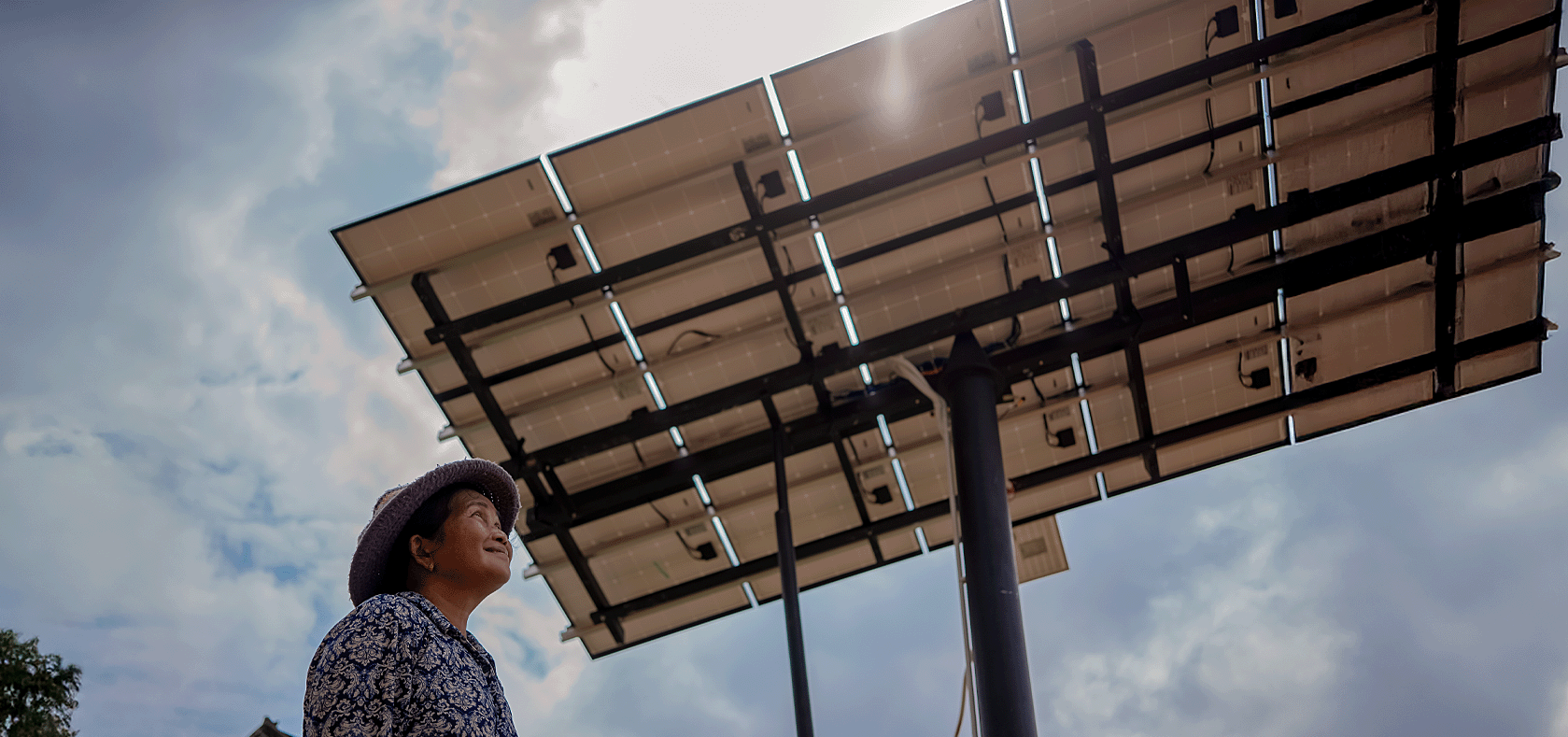Five ways a just energy transition can drive gender equality and social inclusion
Date:

With global emissions hitting record highs of 57.1 gigatonnes of CO₂ in 2023 – a 1.3 per cent rise from the previous year – the urgency to deliver on climate commitments is as pressing as ever.
The Paris Agreement aims to limit global warming to 1.5°C above pre-industrial levels, through Nationally Determined Contributions (NDCs), which outline countries’ targets for reducing emissions and adapting to climate change. The updated NDCs, to be presented in early 2025, must deliver unprecedented emissions reductions to stay within the 1.5°C limit.
As the energy sector contributes an estimated 68 per cent of emissions, its transformation has the potential to deliver both climate and development goals, especially when framed as part of a just energy transition. It offers opportunities to achieve a low-carbon future while creating jobs, ensuring equitable access to clean energy and addressing social inequalities, including advancing gender equality.
What is a just energy transition and why does it matter?
The International Labour Organization (ILO) defines a just transition as “Greening the economy in a way that is as fair and inclusive as possible to everyone concerned, creating decent work opportunities and leaving no one behind.”
Transforming the energy sector is one of the most significant ways to rapidly reduce global greenhouse gas emissions. Steps towards this transformation include transitioning away from fossil fuels, scaling up zero-carbon energy generation and modernizing power grids. Yet, achieving the 1.5°C target requires rapid and profound changes that could heavily impact communities and workers, which underscores the need for a fair and inclusive approach.
As countries accelerate their efforts to meet the 1.5°C target, it is essential that the transition prioritizes the needs and contributions of women, Indigenous Peoples, marginalized communities and future generations – all of whom are at the forefront of the climate crisis.
Five ways this can be done include:
1. Creating job opportunities
The shift to renewables is expected to create millions of jobs globally, outweighing losses in traditional energy sectors. According to the International Renewable Energy Agency (IRENA), sectors such as solar, wind and energy efficiency are among the largest job-creators. The Asia-Pacific region already accounts for around 60 per cent of the people employed in the sector and will likely continue to lead with renewable employment growth. IRENA projects that 27 million jobs could be created in the sector globally, 2.2 million of which are in Southeast Asia.
Currently, women make up only 32 per cent of the global renewable energy workforce, with even fewer in technical and leadership roles. While women often face challenges in the energy sector that limit their potential, targeted solutions like expanding technical training, improving access to finance for women entrepreneurs and addressing gender biases can open up opportunities.
2. Addressing energy poverty while promoting rights
In rural and Indigenous communities, transitioning to sustainable energy can improve access to clean energy, generate local employment and preserve natural resources vital to cultural heritage.
Actively involving Indigenous Peoples in the planning and implementation of energy projects – particularly in projects that affect their lands – can not only reduce energy poverty but also help safeguard Indigenous rights and knowledge, which are critical for environmental stewardship.
3. Promoting renewable energy-based entrepreneurship
Prioritizing community-driven renewable energy projects and supporting women and marginalized groups in clean energy entrepreneurship can help build resilience and economic independence across diverse communities. This inclusive approach ensures that the benefits of a low-carbon economy reach everyone and that the transition fosters a sustainable and equitable future.
For example, in the Asia-Pacific region, the EmPower: Women for Climate-Resilient Societies Programme, jointly implemented by UN Women and the UN Environment Programme, shows how gender-responsive renewable energy projects contribute to the resilience of women and their communities while supporting women to become economically empowered.
4. Promoting women’s leadership
A just energy transition can create pathways for women to step into leadership roles within the growing renewable energy industry. By prioritizing their participation in decision-making processes, from policy creation to the development of renewable energy projects, women’s voices and needs will be better represented, which will result in more effective, equitable and sustainable energy policies and projects.
Women can benefit from the transition and get access to leadership roles through investments in training programmes preparing them for managerial and technical roles in renewables.
5. Strengthening community resilience
Because a just energy transition promotes local entrepreneurship and improved access to renewable energy, it can also strengthen community resilience by reducing dependence on traditional, fossil fuel-based energy sources.
Renewable energy offers the opportunity for energy independence as panels and mini-grids provide reliable power even in remote areas. With solar and wind technologies becoming increasingly affordable, this localized energy access allows communities to build economic stability, supports new business ventures, and enhances adaptation to climate impacts, helping them better withstand and recover from environmental and economic challenges.
Realizing a just energy transition
The next round of NDCs requires overcoming challenges, including increased finance and policy support. To realize a just energy transition, private and public investments must be mobilized to support clean energy projects, infrastructure and job creation. The process for updating NDCs further provides an opportunity to include strategies for a just transition, including workforce retraining, community engagement and support for women and other marginalized and vulnerable communities.
Jointly implemented by UN Women and the UN Environment Programme (UNEP) with support from the Governments of Germany, New Zealand, Sweden and Switzerland, EmPower is dedicated to empowering women and marginalized groups to take the lead in building climate-resilient communities.
For more information, please visit empowerforclimate.org or contact:
Maria Holtsberg
Humanitarian Action, Disaster Risk Reduction, Climate Portfolio Lead
UN Women Regional Office for Asia and the Pacific. e: [ Click to reveal ]
Parimita Mohanty
Programme Management Officer, Climate Change Division
UNEP Regional Office for Asia and the Pacific. e: [ Click to reveal ]